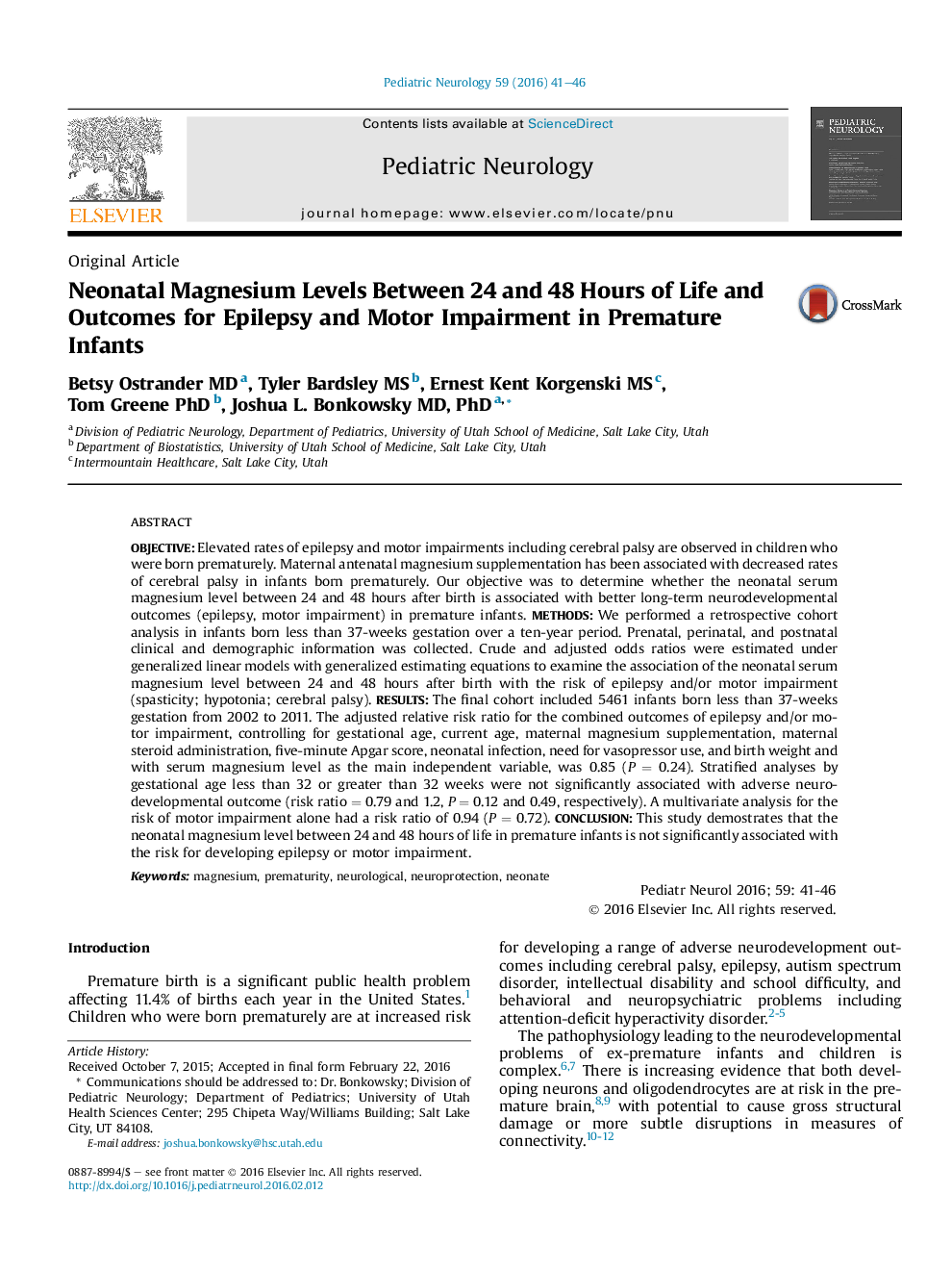| کد مقاله | کد نشریه | سال انتشار | مقاله انگلیسی | نسخه تمام متن |
|---|---|---|---|---|
| 3084335 | 1581267 | 2016 | 6 صفحه PDF | دانلود رایگان |
ObjectiveElevated rates of epilepsy and motor impairments including cerebral palsy are observed in children who were born prematurely. Maternal antenatal magnesium supplementation has been associated with decreased rates of cerebral palsy in infants born prematurely. Our objective was to determine whether the neonatal serum magnesium level between 24 and 48 hours after birth is associated with better long-term neurodevelopmental outcomes (epilepsy, motor impairment) in premature infants.MethodsWe performed a retrospective cohort analysis in infants born less than 37-weeks gestation over a ten-year period. Prenatal, perinatal, and postnatal clinical and demographic information was collected. Crude and adjusted odds ratios were estimated under generalized linear models with generalized estimating equations to examine the association of the neonatal serum magnesium level between 24 and 48 hours after birth with the risk of epilepsy and/or motor impairment (spasticity; hypotonia; cerebral palsy).ResultsThe final cohort included 5461 infants born less than 37-weeks gestation from 2002 to 2011. The adjusted relative risk ratio for the combined outcomes of epilepsy and/or motor impairment, controlling for gestational age, current age, maternal magnesium supplementation, maternal steroid administration, five-minute Apgar score, neonatal infection, need for vasopressor use, and birth weight and with serum magnesium level as the main independent variable, was 0.85 (P = 0.24). Stratified analyses by gestational age less than 32 or greater than 32 weeks were not significantly associated with adverse neurodevelopmental outcome (risk ratio = 0.79 and 1.2, P = 0.12 and 0.49, respectively). A multivariate analysis for the risk of motor impairment alone had a risk ratio of 0.94 (P = 0.72).ConclusionThis study demostrates that the neonatal magnesium level between 24 and 48 hours of life in premature infants is not significantly associated with the risk for developing epilepsy or motor impairment.
Journal: Pediatric Neurology - Volume 59, June 2016, Pages 41–46
